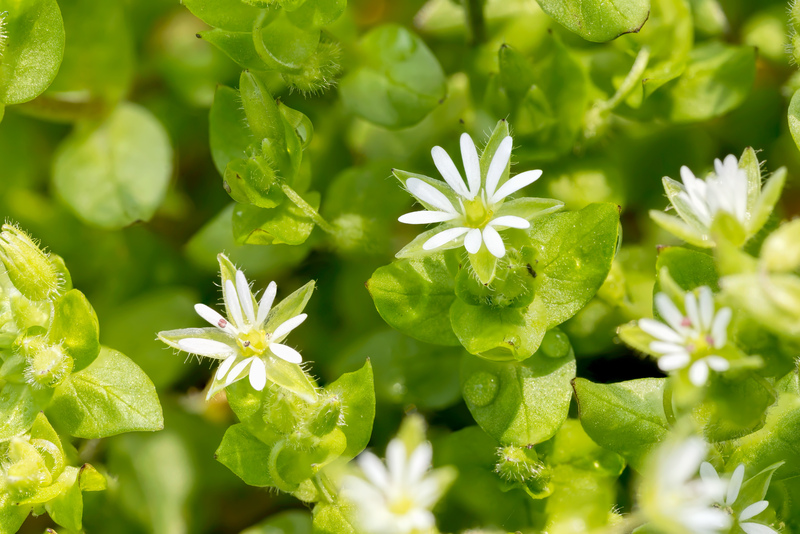Digging Deeper: Gardens as Climate Saviors
Posted on 04/09/2025
Digging Deeper: Gardens as Climate Saviors
Can humble gardens hold the key to a more sustainable and resilient future? As climate concerns escalate, more people are turning to their backyards and community plots to find answers. In this comprehensive guide, we'll dig deep into how gardens act as powerful tools in the fight against climate change--transforming spaces into sanctuaries for nature and climate stability.
Understanding Gardens as Allies in Climate Action
Gardens--whether sprawling landscapes or tiny balconies--are more than just places for visual delight. They can become climate saviors, contributing meaningfully to environmental equilibrium. Let's analyze the core functions of climate-friendly gardens and discover how they can be integrated into the global effort to combat climate change.
The Greenhouse Effect and Carbon Capture
One of the primary climate challenges is the excessive buildup of greenhouse gases, notably carbon dioxide (CO2), in our atmosphere. Gardens mitigate climate change by:
- Sequestering carbon: Plants naturally absorb CO2 during photosynthesis, storing it in their roots, stems, and leaves.
- Preventing soil degradation: Healthy, well-planted soils act as carbon sinks, storing more carbon than barren land.
- Reducing urban heat: Foliage provides shade and cooling, combatting the "urban heat island" effect in cities.
What Makes a Garden a Climate Savior?
Beyond capturing carbon, climate-resilient gardens foster biodiversity, improve soil quality, and manage water efficiently. Here's how gardens perform these eco-heroic functions:
- Promoting biodiversity: Mixed plantings and native species support pollinators, birds, and beneficial insects, enriching local food webs.
- Regulating water cycles: Gardens absorb rainwater, reduce runoff, and help recharge groundwater reserves.
- Encouraging sustainable lifestyles: Home and community gardens motivate people to grow food locally, lowering transportation emissions and food waste.

Gardens as Carbon Sinks: The Science Explained
Photosynthesis: Nature's Carbon Fixer
Photosynthesis is the engine of plant growth--and a central process in using gardens to fight climate change. Through this natural mechanism, plants:
- Absorb atmospheric CO2
- Use sunlight to convert CO2 and water into sugars (energy)
- Release essential oxygen back into the air
The more greenery in your garden, the greater its carbon sequestration potential. Trees, shrubs, and perennial plantings hold onto carbon longer compared to annuals, so diversifying range and longevity of plant species is essential for maximizing a garden's impact as a climate savior.
Soil Health: The Hidden Champion
Healthy soils are crucial in the climate debate. Teeming with microbes, fungi, and organic matter, robust soils lock carbon away for decades (even centuries). Practices such as composting, mulching, and minimal tillage increase soil organic matter, enhancing your garden's abilities as a carbon sink and improving resilience against drought and erosion.
Biodiversity: The Backbone of Ecological Gardening
Why Biodiversity Matters for Climate Resilience
Climate-saver gardens go beyond pretty flowers. Incorporating a variety of native and adaptive species creates a resilient ecosystem, ensuring that even as temperatures fluctuate, some plants and pollinators will continue to thrive.
Features that support biodiversity include:
- Layered plantings (trees, shrubs, ground cover)
- Ponds or water features (for amphibians and birds)
- Pollinator gardens (bee and butterfly-friendly plants)
- Insect hotels and log piles (for beneficial insects and fungi)
These elements not only enhance the garden's ecological value but also contribute to climate adaptation, making your plot more resistant to pests, disease, and unpredictable weather patterns.
Edible Gardens: Growing Food, Shrinking Carbon Footprints
Growing your own fruits, vegetables, and herbs reduces demand for industrial agriculture--one of the world's largest sources of greenhouse gases--and slashes food mileage. Community and backyard gardens empower individuals to make their diets more sustainable while building neighborhood resilience through shared efforts and local produce swaps.
Water-Wise Gardening: Adapting to Drought and Deluge
Rain Gardens and Permeable Landscaping
Climate change brings unpredictable weather--floods in some seasons, drought in others.
Rain gardens are shallow depressions planted with species that tolerate both wet and dry conditions. These gardens:
- Intercept stormwater runoff
- Reduce strain on urban drainage systems
- Filter pollutants before they reach groundwater
Additionally, using permeable surfaces (such as gravel paths or mulched beds) allows rainwater to soak naturally into the soil instead of running off into streets and streams.
Mulching and Drought-Resilient Plantings
Mulch--whether from organic compost, shredded bark, or living ground covers--
- Reduces evaporation
- Suppresses weeds
- Moderates soil temperature
- Feeds soil life as it decomposes
Paired with drought-tolerant native plants, mulch ensures gardens can withstand hotter summers with less water, reducing the need for irrigation and maintaining their climate-saving functions.
Sustainable Urban Gardening: Small Spaces, Big Impact
Rooftop Gardens and Vertical Farms
Urban areas face unique climate challenges, from air pollution to heat islands--a phenomenon where city surfaces trap warmth, raising local temperatures. Rooftop gardens and green walls offer innovative solutions:
- Reduce ambient temperatures: Living roofs reflect and dissipate heat
- Absorb CO2 and pollutants: Dense plantings clean the air
- Increase food security: Edible plantings on rooftops and balconies enable hyperlocal production
Community Gardens and Social Benefits
Beyond their environmental impact, gardens foster social resilience. Community gardening projects bring neighbors together, increasing awareness of climate issues and empowering collective climate action. They offer green spaces in otherwise concrete-dominated areas, providing:
- Educational opportunities for children and adults
- Access to fresh fruits and vegetables for underserved populations
- Habitat for urban wildlife
Community gardens serve as micro-laboratories for sustainable living--proving that, together, people can create green oases that buffer their neighborhoods from climate extremes.
Garden Design Principles for Climate Resilience
Selecting Eco-Friendly Materials and Low-Carbon Techniques
Sustainable, climate-forward gardens incorporate principles that minimize their own environmental footprint:
- Use reclaimed or recycled materials for raised beds, paths, and garden structures
- Opt for manual tools or electric alternatives instead of gas-powered mowers and trimmers
- Harvest rainwater in barrels to irrigate during dry spells
- Compost all garden and kitchen waste to return nutrients to the soil and reduce methane emissions from landfill
Integrating Permaculture and Regenerative Techniques
Permaculture emphasizes working with nature instead of against it, creating gardens that are self-sustaining and resilient to climate shocks. Key strategies include:
- Companion planting to ward off pests
- Polycultures--diverse plantings instead of monocultures
- No-dig gardening to maintain soil life and structure
- Water harvesting swales to manage heavy rains
By embracing these techniques, home and community gardeners play a vital role in reversing climate damage and making their green spaces more abundant, even as global conditions shift.
Success Stories: Gardens as Local and Global Climate Solutions
City Initiatives that Inspire
Cities worldwide are reimagining the role of gardens in their climate action plans. For instance:
- Singapore's "City in a Garden" initiative incorporates rooftop parks and vertical gardens to absorb CO2 and cool the city.
- Detroit's urban gardening renaissance transforms vacant lots into productive, community-managed food gardens.
- London's wildlife corridors link backyard gardens and public parks to provide habitat for pollinators, birds, and mammals.
*These large-scale efforts underline the critical role that both private and public gardens play in climate adaptation and mitigation.*
Individual Transformation: Personal Impact of Climate-Sensitive Gardening
Home gardeners increasingly report that cultivating a sustainable garden has led to:
- Lower home energy bills due to strategic plantings offering windbreaks and shade
- Increased wildlife sightings from creating diverse habitats
- Better well-being and a stronger sense of connection to the ecosystem
These benefits ripple outwards: each climate-resilient garden acts as a node in a larger network, amplifying collective impact and inspiring neighbors to adopt sustainable practices.
Overcoming Challenges: Climate Gardening for Every Region
Climate Zones and Plant Selection
Successful climate-savvy gardening requires selecting plants appropriate for your specific climate zone--whether you're in a temperate, tropical, arid, or sub-polar region. Using local or drought-tolerant species reduces the need for watering and chemical interventions, maximizing your garden's environmental benefits.
Managing Pests Sustainably
With shifting climate patterns, pest species may expand into new regions. Sustainable management includes introducing natural predators, rotating crops, and keeping plantings diverse. Avoiding chemical pesticides protects both the environment and the helpful organisms vital to a robust ecosystem garden.
Budget-Friendly Strategies for Climate Action in the Garden
Climate-smart gardening need not be expensive:
- Start a community tool-share program to reduce equipment costs
- Propagate plants from seeds, cuttings, or divisions exchanged with neighbors
- Collect and compost household food scraps

The Future: Gardens as Pillars of Climate Resilience
Scaling Up: Policy and Grassroots Support
To unleash the full potential of gardens as climate saviors, we need policy innovation:
- Tax incentives for planting trees and creating green roofs
- Support for school gardens that educate students about climate action
- Funding for community garden networks in urban and rural areas
Citizens and lawmakers must work together to scale these initiatives, ensuring that gardens remain at the heart of local and national climate strategies.
Personal Action for a Greener Tomorrow
Every gardener holds the power to make a difference. By embracing biodiversity, sustainable practices, and community collaboration, your garden can truly become a climate hero. As more people dig deeper into their soils--and lifestyles--gardens will continue to blossom as beacons of hope in the global effort to heal our planet.
Conclusion: Dig Deeper--Your Garden, Our Climate
Gardens are much more than decorative landscapes; they are vital climate saviors in our own backyards. From carbon capture and biodiversity support to water regulation and food production, the humble garden offers practical and powerful solutions to some of our planet's most urgent environmental challenges.
It's time to see every plot--no matter the size--as part of the climate solution. Whether you're a seasoned horticulturist or a budding gardener, your hands in the soil can help balance our climate, restore nature, and secure a more hopeful future for generations to come.
Dig deeper, grow greener, and let your garden become a true climate savior.
Latest Posts
All you need to know about container gardening
Keeping Your Garden Alive: Winter Plant Care Essentials
Low-Expense Garden Upkeep Ideas for Busy Homeowners
Designing a Zen Garden for Ultimate Outdoor Relaxation
Boost your privacy quickly with these fast-growing hedge choices



